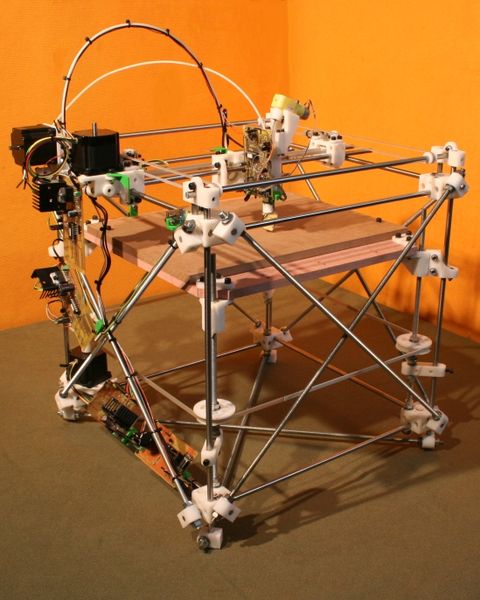

Competition can be fine, especially if it's fair. But competition brings with it some animal instincts that can be destructive (e.g. envy), so increasingly we assess a society which maximises sharing and collaboration. Not everything in life needs to be viewed like a contest. Not even philosophies, although they're inherently different from brands of more or less the same thing.
"For the betterment of our increasingly-digital society we need to look beyond just software."The "Open Hardware" movement is in many ways derived from the philosophy laid out by Richard Stallman about 30 years ago. It lets people experiment with the hardware they bought and it also encourages (if not forces) manufacturers to share designs in order to maximise improvement among everyone. It's hardware liberalism, as opposed to protectionism. Selfishness and isolation get replaced by the common good, and savings are gained (for more employment, more investment) by eliminating reinventions.
There are two new stories about Open Hardware; one is about camera design and the other about why Open Hardware is revolutionary. There are many branches of freedom (or as some redefined it, "openness") and they includes free content, free data, and free hardware (commonly known as "Open Hardware" or "Open-source hardware" these days), where "free" refers to freedom. For the betterment of our increasingly-digital society we need to look beyond just software. Sometimes hardware limits our software freedom (c/f UEFI 'secure' boot). The spirit of sharing is collectively beneficial to all, except to those who hoarded or blocked innovation in particular areas (i.e. created a monopoly and guarded it with new laws such as patent law). ⬆
Related/contextual items from the news:
The frustration of locked-down proprietary camera firmware is one that many of us are familiar with. It’s pretty annoying to have a camera that could clearly be capable of all kinds of things but is heavily restricted by the locked-down software it is running. This is of course the origin of the Magic Lantern project, which was borne of the frustration of camera hardware that was capable of doing so much but was restricted by the built in firmware and the policies of the companies involved. It has taken a lot of work by the Magic Lantern team to gain access to the camera and to build an understanding of the way it functions, so that they could run their own software alongside the camera firmware and new features could be added.
Most of us that are technologically inclined are familiar with the term open source. It is often used in a software context to mean that the source code of the software is openly accessible and mutable by anyone who possesses the know-how. This software gives designers the freedom to change, improvise and customize the source code to anyone’s use. In essence, open sourcing software enables the software to become a building block rather than an opaque commodity.